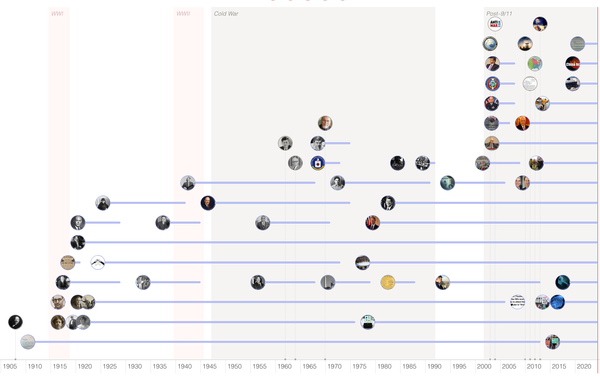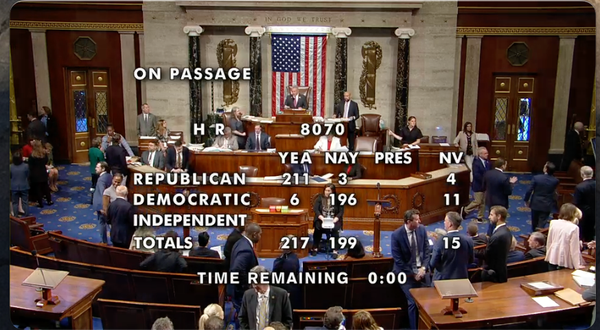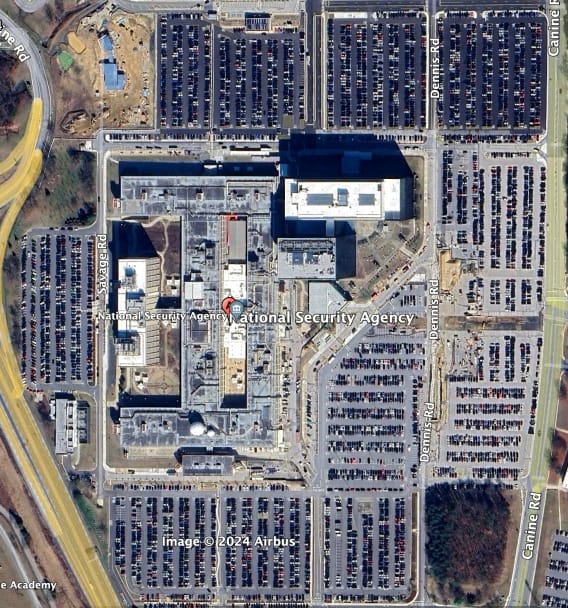Warner's FISA "Fix": The Oxymoron of "Secret Law" in a Republic

The Senate Intelligence Committee leader just released his "fix" for a new, radically overbroad Foreign Intelligence Surveillance Act (FISA) authority signed into law two months ago. The public may not know for years--or ever--if it worked. And a new provision on American's geolocation info should worry everyone.
You may recall that in the April 22, 2024, edition of the Sentinel, I said this about the just-passed FISA Section 702 reauthorization bill:
H.R. 7888's enactment ensures that federal law enforcement and intelligence elements will be able to continue to buy data on Americans without a warrant, and to dramatically expand the FISA Section 702 program’s reach into data centers, cloud storage providers, and many other businesses. The ability of FBI agents to search the stored communications of Americans captured under Section 702 without a probable cause-based warrant also remains intact.
On May 30, Martin Matishak at The Record reported that
U.S. senators want to tweak a recently renewed surveillance authority in an attempt to honor a pledge to narrow which entities the federal government can compel to hand over communications.
The bill in question, S. 4443, the Intelligence Authorization Act for Fiscal Year 2025, offered by Senate Intelligence Committee Chairman Mark Warner (R-VA), allegedly does this at Section 1202 of the legislation:
SEC. 1202. Limitation on directives under Foreign Intelligence Surveillance Act of 1978 relating to certain electronic communication service providers.
Section 702(i) of the Foreign Intelligence Surveillance Act of 1978 (50 U.S.C. 1881a(i)) is amended by adding at the end the following:
“(7) LIMITATION RELATING TO CERTAIN ELECTRONIC COMMUNICATION SERVICE PROVIDERS.—
“(A) DEFINITIONS.—In this paragraph:
“(i) APPROPRIATE COMMITTEES OF CONGRESS.—The term ‘appropriate committees of Congress’ means—
“(I) the congressional intelligence committees;
“(II) the Committee on the Judiciary of the Senate; and
“(III) the Committee on the Judiciary of the House of Representatives.
“(ii) COVERED ELECTRONIC COMMUNICATION SERVICE PROVIDER.—The term ‘covered electronic communication service provider’ means—
“(I) a service provider described in section 701(b)(4)(E); or
“(II) a custodian of an entity as defined in section 701(b)(4)(F).
“(iii) COVERED OPINIONS.—The term ‘covered opinions’ means the opinions of the Foreign Intelligence Surveillance Court and the Foreign Intelligence Surveillance Court of Review authorized for public release on August 23, 2023 (Opinion and Order, In re Petition to Set Aside or Modify Directive Issued to [REDACTED], No. [REDACTED], (FISA Ct. [REDACTED] 2022) (Contreras J.); Opinion, In re Petition to Set Aside or Modify Directive Issued to [REDACTED], No. [REDACTED], (FISA Ct. Rev. [REDACTED] 2023) (Sentelle, J.; Higginson, J.; Miller J.)).
“(B) LIMITATION.—A directive may not be issued under paragraph (1) to a covered electronic communication service provider unless the covered electronic communication service provider is a provider of the type of service at issue in the covered opinions.
You'll notice in the "Covered Opinions" section that even references to the subjects of the FISA Court and FISA Court of Review legal opinions are redacted. In fact, the full opinions themselves have never been fully declassified and made available to the public for examination.
And it gets worse.
The Congress's leading Bill of Rights defender, Senator Ron Wyden (D-OR) expressed his feelings on the matter clearly in a press release a week before Matishak's story ran:
Finally, improvements were made with regard to FISA Court review and congressional oversight of the sweeping new FISA authorities passed last month. While the bill also helps rein in the authorities, the new limits on the authorities are secret. [emphasis added]
"It is important to narrow the incredibly broad authorities that Congress unwisely passed last month, Wyden said. "But it is a fundamental democratic principle that an American citizen should be able to read the law and have some inkling about what government officials are and are not allowed to do, particularly when it concerns warrantless surveillance. Secret law is dangerous and undermines trust in government and in the Congress."
This form of Congressional "Just trust us" oversight is exactly how we got to where we are with radically over-broad surveillance powers in the hands of federal agencies in the first place.
Secret law isn't simply dangerous. It allowed the FBI to conceal from the public for years that it had spied on domestic political protesters and conducted searches on 19,000 donors to a House congressional campaign.
One thing Matishak's piece did not discuss was another provision earlier in the bill that deals with U.S. Person geolocation data. That's at Section 314 of Warner's bill:
SEC. 314. Policy on collection of United States location information.
(a) Definitions.—In this section:
(1) UNITED STATES LOCATION INFORMATION.—The term “United States location information” means information derived or otherwise calculated from the transmission or reception of a radio signal that reveals the approximate or actual geographic location of a customer, subscriber, user, or device in the United States, or, if the customer, subscriber, or user is known to be a United States person, outside the United States.
(2) UNITED STATES PERSON.—The term “United States person” has the meaning given that term in section 101 of the Foreign Intelligence Surveillance Act of 1978 (50 U.S.C. 1801).
(b) In general.—Not later than 180 days after the date of the enactment of this Act, the Director of National Intelligence, in coordination with the Attorney General, shall issue a policy on the collection of United States location information by the intelligence community.
(c) Content.—The policy required by subsection (a) shall address the filtering, segregation, use, dissemination, masking, and retention of United States location information.
(d) Form; public availability.—The policy required by subsection (a)—
(1) shall be issued in unclassified form and made available to the public; and
(2) may include a classified annex, which the Director of National Intelligence shall submit to the congressional intelligence committees.
Geolocation data collection by the U.S. Intelligence Community on U.S. soil should be expressly forbidden by law, and the FBI and other federal law enforcement agencies should only be able to obtain it via a probable cause-based warrant signed by a federal judge.
The fact that Warner and his colleagues on the Senate Intelligence Committee seem to think it's just fine to let America's spies decide when, where, how, and for what reason they can collect geolocation data on U.S. citizens should be front page news in every media outlet.
Whether this bill will even become law is, at the moment, unclear.
House Republicans remain fixated on using the legislative process to attack the Biden administration and to try to pass red meat "culture war" bills to please their politically infantilized base, so it's possible Warner's bill might clear the Senate but not get House action. I'll keep you informed on the status of this FISA "fix" and related Bill of Rights issues as events unfold.
Thanks for reading the Sentinel. If you're not currently a subscriber, please consider becoming one as doing so is free through 2024 and it's an easy way to show your support for my work. Also, please share this piece with family, friends, and anyone else you believe would benefit from reading it.




